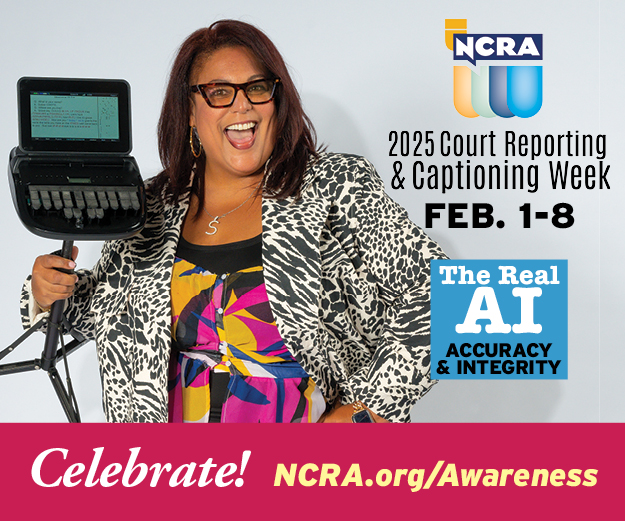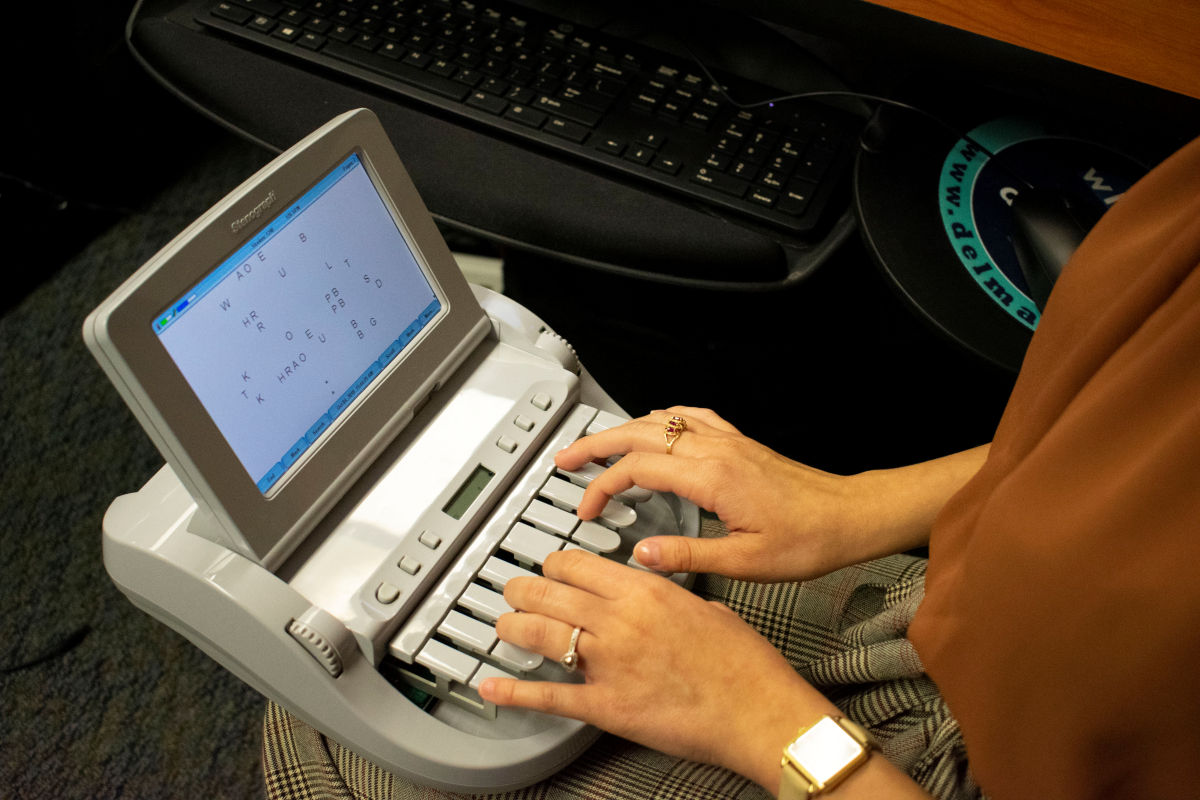How court reporting Helps Prevent Miscommunication in the Courtroom
Recognizing the Important Role of Court Coverage in Legal Process
Court reporting is typically overlooked, yet it's necessary in lawful process. Allow's explore the fundamental features of court reporting and its significance in the lawful landscape.
The History of Court Reporting
Court coverage has a rich background that goes back to old worlds, where scribes utilized various techniques to record talked words. The earliest forms of shorthand emerged in Greece around 400 BC, allowing theorists and politicians to record speeches rapidly. As you relocate via background, you'll discover that the Romans took on similar methods, improving them to document lawful procedures. By the 16th century, contemporary shorthand systems started to materialize, allowing stenotype reporter to generate accurate transcripts efficiently.
In the 19th century, the invention of the typewriter transformed the career, making it simpler to produce legible records. The intro of steno machines in the 20th century additionally advanced court reporting, allowing real-time transcription throughout trials. Today, stenotype reporter play a substantial duty in lawful procedures, guaranteeing that every word talked in the court room is precisely documented. Recognizing this history highlights the significance of court reporting in maintaining a fair lawful system.
The Skills Needed for Court Reporters
As a stenotype reporter, you require strong keying skills to stay on top of the fast-paced discussion of legal process. Your capacity to pay attention diligently is equally as necessary, guaranteeing every word is caught properly. Mastering these skills is crucial to delivering precise and trusted transcripts.
Competent Keying Capabilities

Strong Listening Abilities
Strong paying attention skills are crucial for stenotype reporter, as they should properly record spoken words in real time. You need to concentrate intently on the discussion, grabbing subtleties, tone, and context to assure every detail is tape-recorded properly. This skill aids you separate in between speakers, recognize legal jargon, and comply with intricate discussions. It's not practically hearing words; it's regarding understanding and translating them quickly. You'll frequently face numerous accents and speech patterns, so adaptability is crucial. Exercising energetic paying attention techniques can enhance your abilities; as an example, summarizing what you've listened to after discussions can enhance your abilities. Ultimately, solid listening skills make you a vital asset in lawful procedures, guaranteeing clearness and precision in the court record.
The Innovation Behind Court Coverage
In the domain name of lawful process, innovation plays a necessary function in enhancing the accuracy and efficiency of court reporting. You're most likely aware of the traditional stenotype machine, yet modern-day court press reporters now utilize sophisticated software program that integrates with these devices, permitting real-time transcription. This suggests you can have instantaneous accessibility to the transcript as the procedures unfold.
Digital audio recording is an additional technological development that's gaining traction. It catches every talked word, ensuring absolutely nothing is missed. Some reporters use voice acknowledgment software application, which can assist streamline the transcription procedure, though it still needs human oversight for accuracy.
In addition, cloud-based storage space permits very easy gain access to and sharing of records, improving partnership among legal teams. By leveraging these innovations, court press reporters can offer top quality, prompt records that are essential for the legal procedure. Welcoming this tech not just boosts your understanding yet likewise guarantees integrity in lawful documentation.
The Court Coverage Refine

As lawful proceedings unravel, the court reporting process ends up being essential in catching every information precisely. You'll locate that a court press reporter plays an essential duty by recording talked words right into written text in real-time. When you tip right into the courtroom, the press reporter is currently prepared, furnished with specialized tools like stenographic machines and audio recording tools.
Throughout the process, the press reporter listens diligently, typing out every little thing said, from witness testimonies to attorneys' debates. You may see them stopping briefly occasionally to assure quality or to ask for a repeat if something wasn't clear. After the session, the reporter assesses the transcript, making essential edits for readability.
This whole procedure not just guarantees an extensive record yet additionally prepares you for future referral during allures or situation reviews. In the fast-paced atmosphere of a court room, the court reporting process is necessary for maintaining an exact account of occasions.
The Significance of Precision in Transcripts
While a stenotype reporter's main obligation is to record talked words, the precision of these records is vital for the integrity of legal process. When you're associated with a situation, you rely upon precise paperwork to recognize the events and debates offered. Any mistakes in transcription can cause misconceptions, misconceptions, and even wrongful judgments.
Accurate records guarantee that every detail is captured, supplying a trustworthy document for judges, attorneys, and courts. This degree of detail is vital during allures or when referencing past testaments. If a transcript contains mistakes, it can weaken the whole lawful process, possibly impacting outcomes.
Additionally, accurate transcripts promote the civil liberties of all celebrations entailed, promoting justness and openness. So, whether you're a this post lawyer planning for test or a witness reviewing your testimony, you can trust that the stenotype reporter's ability in accuracy plays a substantial duty in your instance's success.
The Duty of Court Reporters in Different Legal Setups
Stenotype reporter play an essential function in different legal settings, from tests to depositions and legal hearings. You'll find that their work guarantees every spoken word is accurately recorded, which is crucial for the legal procedure. Understanding how their responsibilities differ throughout these environments can highlight their effect on the justice system.
Court Reporters in Trials
In any type of legal test, you'll discover that court press reporters play a crucial duty in capturing the process with precision and accuracy. Court reporters have to maintain emphasis and speed, typically using specific devices to keep up with hectic discussion. Ultimately, court reporters assist promote the justice system, guaranteeing transparency and liability throughout trials.
Depositions and Lawful Hearings
Beyond trials, court reporters likewise play an important role in depositions and lawful hearings. Court reporters give real-time transcription solutions, enabling lawyers to adhere to along and attend to any kind of issues instantly. In short, court reporters are important in maintaining the stability and clearness Visit Website of the legal record in depositions and hearings.
Future Trends in Court Reporting
As innovation continues to develop, the future of court reporting promises to be shaped by innovative tools and techniques that improve accuracy and efficiency. You'll likely see raised use expert system and real-time transcription services, streamlining the reporting procedure. These developments can aid you access transcripts much faster, which can be crucial for your legal methods.
Furthermore, incorporating video conferencing and remote reporting will become much more common, enabling you to link with court press reporters from anywhere (court reporting). This adaptability can make depositions and hearings more available, conserving both time and sources
You'll additionally observe an emphasis on electronic recordkeeping, which streamlines the storage and retrieval of records. With cloud-based services, you'll have the capacity to share documents securely and collaborate with your lawful group in real-time.
Frequently Asked Questions
What Is the Ordinary Income of a Stenotype Reporter?
The ordinary income of a stenotype reporter differs by location and experience, yet you can anticipate it to vary from around $50,000 to $80,000 each year. Lots of aspects influence this revenue, including field of expertise and demand.
How Do I End Up Being a Certified Stenotype Reporter?
To end up being a certified stenotype reporter, you'll require to complete a court reporting program, pass an accreditation test, and gain useful experience. It's important to stay upgraded on sector requirements and continuing education and learning demands.
What Sorts of Situations Do Court Reporters Cover?
Court reporters cover various instances, consisting of criminal trials, civil lawsuits, depositions, and arbitration hearings. You'll find them recording everything, making sure exact documents for judges, lawyers, and celebrations involved, recording every word talked in legal settings.
Are Court Reporters Required to Have a Degree?
Yes, court reporters normally need a level or certification in court reporting. Several programs provide specialized training, guaranteeing you get the abilities essential for precise transcription and legal documents in different setups.
Can Court Reporters Work Remotely?
